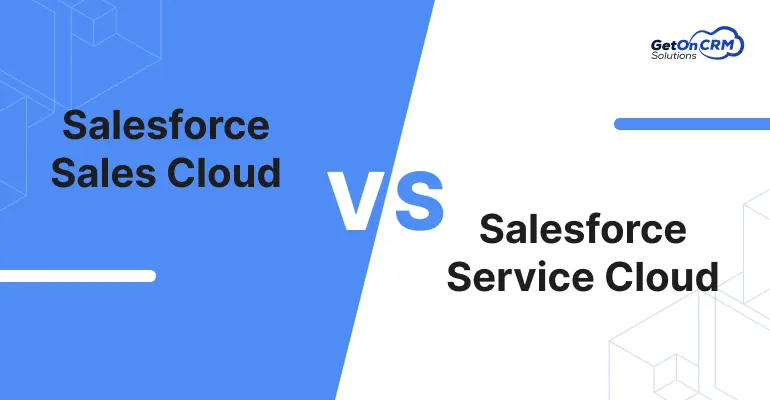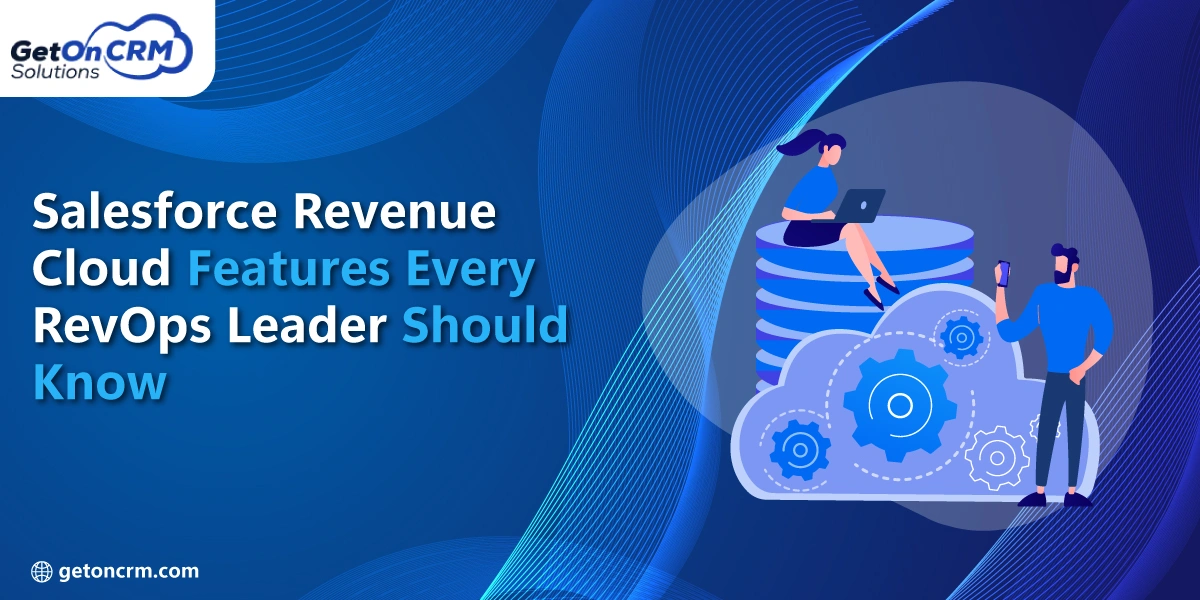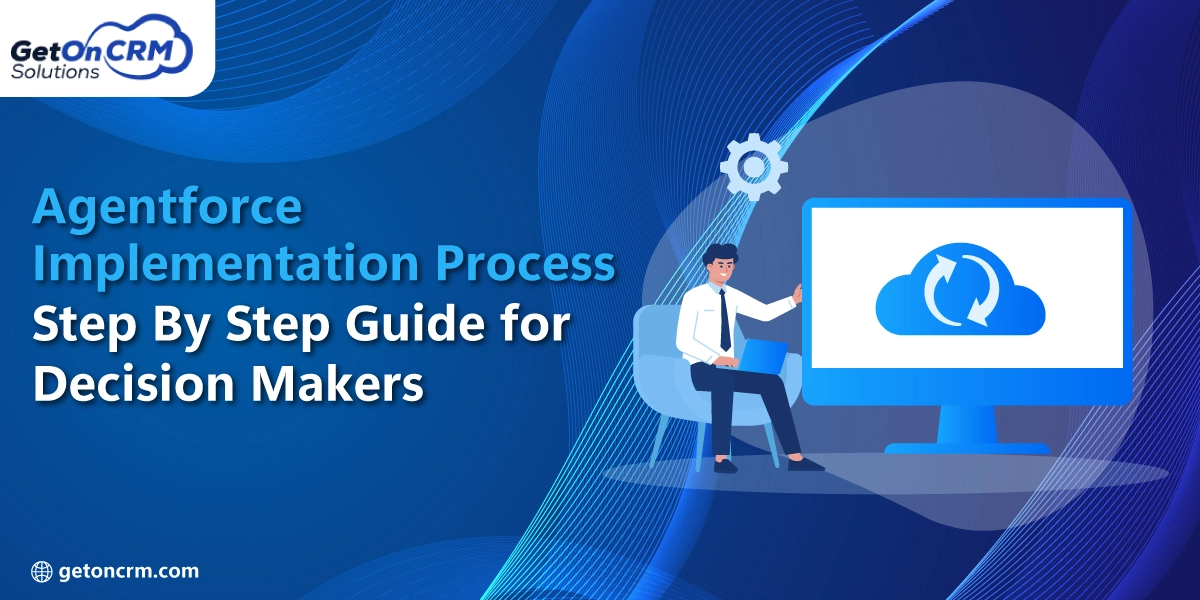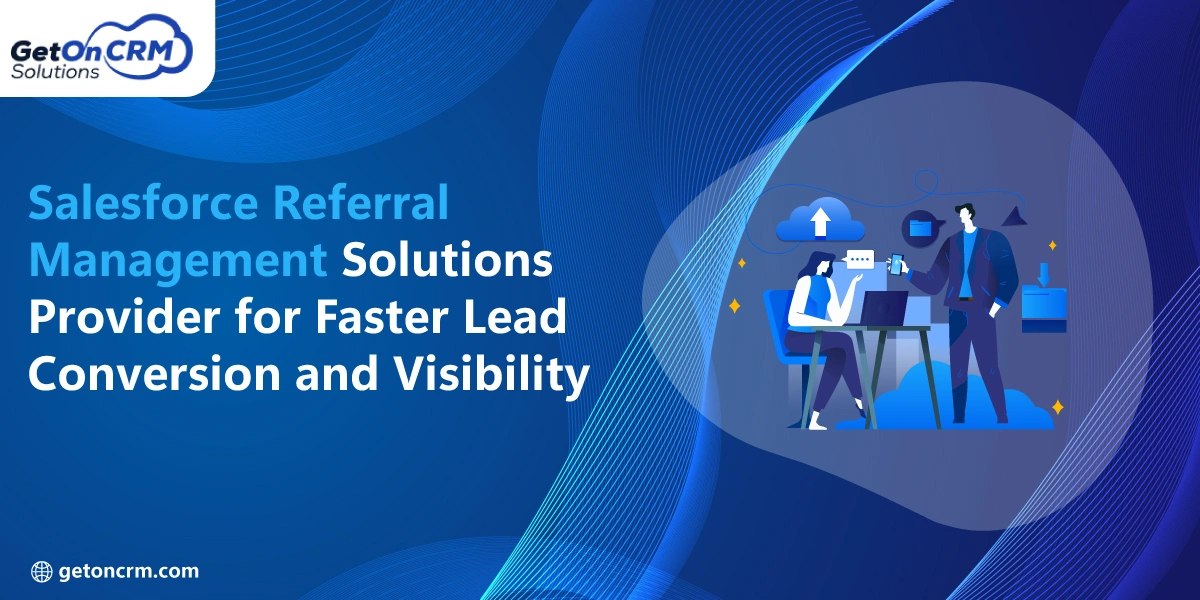In today’s competitive world, opting for Salesforce integration is a strategic step toward business success. However, if you want to deploy CRM solutions by Salesforce, one of the most common concerns faced is Sales Cloud vs. Service Cloud. These are the two most popular platforms powerful enough to handle any enterprise for sales and services.
These two platforms are designed for quite different purposes. If you wonder about the difference between Sales Cloud and Service Cloud, you are not the only one! Many entrepreneurs evaluate the Sales Cloud and Service Cloud comparison to decide which suits their operational requirements best.
Salesforce implementation enables you with the right ammunition to help you grow your modern-day business with contemporary solutions. However, you need to make well-informed decisions by knowing both of these platforms in detail – from their essential functionalities to ideal use cases and advantages.
We will also answer common queries such as “Which is better Sales Cloud or Service Cloud?” and guide you through choosing between Sales Cloud and Service Cloud based on your business size, types, and goals.
Understanding Salesforce Sales Cloud
Sales Cloud is a comprehensive CRM platform for sales-related aspects. With Sales Cloud services offered by experts, it is easier to restructure sales processes, enhance customer engagement, and boost productivity. The technology empowers enterprises with tools for lead management, market prediction, collaboration, and data-based insights to earn revenue.
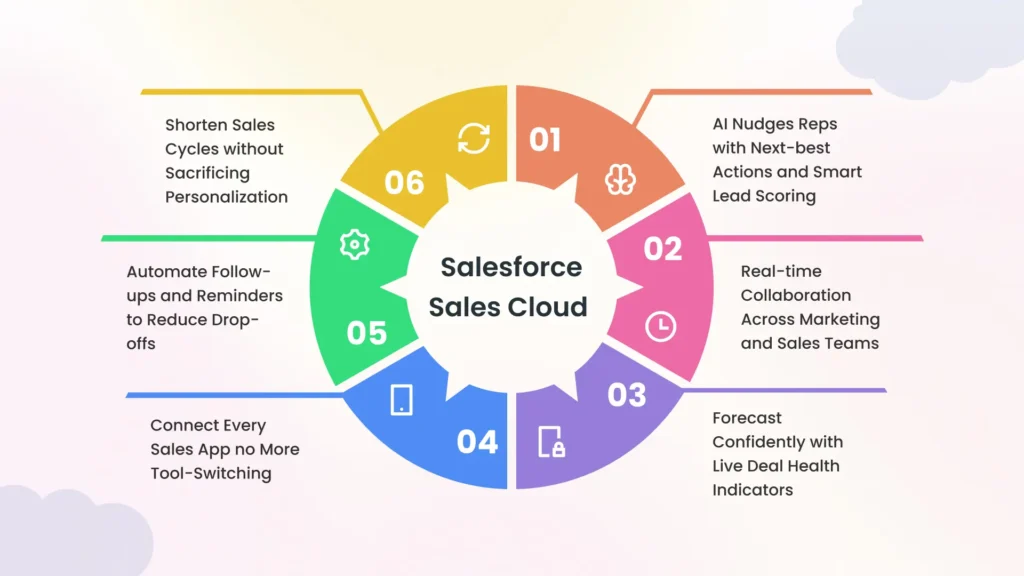
Core Features and Capabilities of Salesforce Sales Cloud
Salesforce Sales Cloud features are meant to streamline and automate the whole sales cycle. It provides advanced tools like lead management, sales pipeline tracking, and opportunity tracking to help salespersons close their deals faster. Integrated AI provides smart recommendations and automation tackles repetitive tasks to free up human agents for better jobs.
The platform can support customizable dashboards and real-time reporting to ensure that every person in sales has a clear outline of performance metrics and KPIs. This also enables one to make better decisions and forecasting for sales operations.
Ideal use cases for Salesforce Sales Cloud
Sales Cloud for B2B scenarios is the best example, where the platform truly shines. Enterprises with complex sales processes and lengthy deal cycles or multiple decision-makers have the best advantages. Salesforce Sales Cloud helps increase sales and productivity for professional firms, SaaS companies, and enterprises, where lead tracking at every stage is essential.
B2B teams require a CRM that can support more than one interaction, follow-ups, and content delivery throughout the customer’s journey. With Sales Cloud, every stage is optimized for better customer engagement and conversion.
Benefits of Businesses Focusing on Sales Cloud
Your businesses have ample ways to achieve sales goals with Sales Cloud. You can enjoy tangible results in revenue growth and productivity by getting full visibility into your lead lifecycle by centralizing customer relationship management data with ease.
Your sales representatives can benefit from agent productivity tools such as automation, email integration, and task reminders, all crafted to accelerate the sales process.
In addition, sales pipeline tracking enables leaders to gauge future revenues with accuracy. Teams can specifically target the right prospects, track their performance, and make sure that every lead gets a consistent sales experience. It is a solution that embraces the growing business and teams while scaling with your goals.
For example, a solar panel manufacturing powerhouse witnessed a 30% surge in lead conversion rate and ignited revenue growth.
Understanding Salesforce Service Cloud
Service Cloud as a service helps improve customer engagement and enhance satisfaction. It provides tools for automation, case management, knowledge sharing, and omnichannel support. Service Cloud enables businesses to provide efficient, customized, and hands-on service experiences.

Core Functionalities and Features of Salesforce Service Cloud
Service Cloud is the most useful customer service solution as the platform focuses on customer service automation through features such as ticketing system management, omnichannel support, case management, and Artificial Intelligence chatbots. From customer inquiries generated through phones, social media chat, email, or web chat, all channels are accessible and fetch information.
Service Cloud also uses Artificial Intelligence to route tickets to the most eligible human workforce. Salesforce Service Cloud also houses features such as self-service portals, knowledge base integration, and SL tracking, using which sales teams can reduce resolution time and enhance customer satisfaction.
Ideal Use Cases for Salesforce Service Cloud
Service Cloud for customer support teams is quite an essential tool for companies with huge volumes of service requests. Industry verticals such as healthcare, finance, eCommerce, and telecom deal with enormous amounts of data, and for them, Service Cloud is the best solution. The platform is also a boon for subscription-based business models where customers need ongoing technical support.
For teams that manage complex systems or deal with compliance, Service Cloud can optimize and support workflow while ensuring efficiency, transparency, and a memorable customer experience. Whether it is troubleshooting, managing account issues, or returns, Service Cloud offers a seamless experience to build trust.
Benefits of Businesses Focusing on Customer Service
Implementation of Service Cloud remarkably improves KPIs like First Response Time and CSAT (Customer Satisfaction). With agent productivity tools, case management tools, and customer service automation, sales teams can work smarter, not just harder.
Service Cloud improves agent collaboration and delivers actionable data at the right time so that you can take any proactive measures. Whether you are a small team or an enterprise helpdesk, Service Cloud can provide you with the best support you require. Ultimately, your business will achieve efficient operations, loyal customers, and a stronger brand reputation.
Features to empower your sales teams:
- Live chat
- Agent productivity measures
- Knowledge bank
- Smarter reports
Your teams can scale operations without compromising on quality. This platform can, in turn, attract loyalty and reduce churn while positioning your brand in the market.
Service Cloud’s AI-driven insights can prioritize high-impact jobs and route them into a proper channel. Recommendation engines can further nourish the lead and increase the chances of fairer outcomes. The ability to bring in information or data from all possible and scattered channels, such as social media, emails, text chats, or even phone calls, can ensure that customers get a highly personalized and seamless experience.
Here are some more ways businesses benefit from Service Cloud:
- Improve First Contact Resolution (FCR): You have a centralized customer dataset and Artificial Intelligence recommendations using which your human agents can solve more queries of customers right from the first interaction. This increases efficiencies and remarkably reduces repeated follow-ups.
- Comprehensive reporting and analytics: Service managers have access to real-time sales dashboards and performance parameters. This helps them refine and rebuild support strategies while optimizing resource management.
- Proactive support capabilities: Predictive analytics identifies crucial concerns before they escalate and affect the system. This allows sales teams to reach out to concerned persons or customers proactively and prevent catastrophic damage.
All in all, Service Cloud by Microsoft not only improves customer support outcomes but also ensures that the overall customer support/service
Key Differences Between Salesforce Sales Cloud vs Salesforce Service Cloud
Salesforce has been extensively used in business solutions. Known cases are Salesforce CRM streamlining sales, and on the other hand, managing complex invoicing with ease. Now, when Salesforce offers several products with different functionalities, it confuses users. Salesforce Service and Sales Cloud are two of the most common and confusing products by Salesforce.
Even top-level entrepreneurs are confused between Salesforce Service Cloud and Sales Cloud. Though these are both Salesforce products that work hand-in-hand but they have distinct features and functionalities.
Here are some of the noteworthy differences between them –
Focus area: Sales Cloud vs Service Cloud
The primary focus is on the first chapter, you must understand how Sales Cloud differs from Service Cloud.
Sales Cloud is all about nurturing leads into conversion, i.e., paying customers. On the other hand, Service Cloud is solely dedicated to providing the best service post-sales.
Think of Sales Cloud as the best business development engine – you can manage contacts, opportunities, and revenues. On the other hand, Service Cloud functions as the best supporting hub to manage support cases, real-time customer interactions, and knowledge guidance.
Tools and Capabilities Unique to Each Platform
Salesforce Sales Cloud Tools
Sales Cloud tools include AI-driven lead management, sales pipeline tracking, and opportunity tracking dashboards that provide a holistic survey of your sales funnel. Performance metrics and forecasting enable your business to anticipate growth and quota planning.
Salesforce Service Cloud Tools
Service Cloud tools focus on ticketing systems features, automated workflows, and case management, along with omnichannel support ability. AI-powered chatbots route inquiries, and self-service portals bring down the human agent workload.
Each platform offers distinct sales and service automation tools, and therefore, they are essential to boost your business.
Target Users and Primary Goals
Sales Cloud is developed for salespersons, business development managers, and account executives who want sheer control over the entire sales lifecycle. The primary goal is to build, nurture, and close deals without any glitches.
On the other hand, Service Cloud is crafted for customer service representatives, helpdesk forces, and supporting managers. The primary goal is to solve customer issues quickly and effectively to ensure loyalty. Your business can improve customer relationship management after sales.
Sales Cloud Pricing
| Plan | Price (USD/User/Month) | Billed Annually | Features |
| Enterprise | $165 | Yes | Everything in Pro Suite plus Advanced Pipeline Management & Deal Insights Conversation Intelligence Agentforce |
| Unlimited | $330 | Yes | Everything in Enterprise plus Predictive AI Conversation Intelligence and Sales Engagement Premier Success Plan and Full Sandbox |
| Einstein 1 Sales | $500 | Yes | Everything in Unlimited, plus Generative AI Performance Management, Sales Programmes and Team Collaboration with Slack Connect and Unify All Data with Data Cloud and Revenue Intelligence |
Sales Cloud Pricing
| Plan Name | Price (USD/User/Month) | Billed Annually | Features |
| Starter Suite | $25 | No (Monthly/Annually, Starting Price) | Dynamic Email Marketing and Analytics Out-of-the-box Sales Processes Seamless Customer Service Simplified Shop Front Builder |
| Pro Suite | $100 | Yes (Contract Required) | Everything in Starter plus Enhanced, Real-Time Chat Greater Customization and Automation Sales Quoting and Forecasting Access to AppExchange |
| Enterprise (Service CRM) | $165 | Yes | AI for Customer Service Self-Service Help Centre Workflow Automation |
| Unlimited (Service CRM) | $330 | Yes | 24/7/365 Support AI-powered Chatbots |
| Einstein 1 Service | $500 | Yes | Everything in Unlimited plus Digital Channels, Service Intelligence, and Slack AI in the Flow of Work with Einstein for Service Data Cloud |
Key Features for Sales Cloud and Service Cloud
Sales Cloud and Service Cloud offer a range of powerful capabilities designed to optimize sales processes and enhance customer service. In this section, we explore the key features that make each platform essential for businesses aiming to drive growth, improve efficiency, and deliver exceptional customer experiences.
Let’s explore the features of Sales Cloud and Service Cloud.
Sales Cloud Features
- Lead and Opportunity Management: It allows sales teams to monitor leads, opportunities, and accounts via flexible pipelines that ensure there is never a missed opportunity.
- Forecasting Sales: Offers real-time sales information that utilizes AI to forecast future trends in sales. This allows better revenue forecasting and more effective decision-making.
- Controlling Accounts and Contacts: The system organizes customer data and their communication history, providing sales reps a 360-degree overview of each customer and providing more targeted sales efforts.
- The Sales Path as well as Guided Selling: It provides a visual guide for sales reps in every phase of the sales cycle, helping to improve efficiency and consistency in selling.
- AI-Powered Intelligence with Einstein: Einstein AI helps sales teams find hidden information, recommend actions and prioritize tasks based on customer data and patterns of behavior.
- Collaboration Tools (Chatter): Facilitates internal communication via Chatter, allowing teams to work in real-time about cases, opportunities, and accounts, thereby increasing team efficiency.
- Mobile Access: With the app for mobile sales teams are able to gain access to customer information, update opportunities, and monitor results on the go, making sure they never lose an opportunity.
- Customizable Dashboards and reports: Users can design custom dashboards and reports that analyze sales performance, track KPIs, and make decisions based on data.
- The Quote Management and the Order Management: It streamlines the creation of orders and quotes. This makes it simple for sales representatives to offer exact pricing and turn opportunities into sales.
- Integration with third-party tools: It seamlessly integrates with third-party applications for enterprise, such as calendar, email as well ERP, providing an efficient flow of data throughout the company.
Service Cloud Features
- Case Management: Allows service teams to handle and solve customer problems quickly, starting from the initial call until resolution, ensuring a seamless customer experience.
- Omni-Channel Routing: Automatically directs customer enquiries through several channels (email, telephone chat, social media) to the correct agent, thereby increasing response time and customer satisfaction.
- Knowledge Base: Offers self-service with a knowledge base that allows customers to find solutions to frequently asked questions, thus reducing the burden on service representatives.
- Service Console: Provides a single, customized interface that allows agents to access all customer data, communications history, and case information all in one location, increasing agents’ productivity.
- AI-Powered Chatbots (Einstein Bots): Utilizes AI to respond instantly to customer questions and automate routine tasks and free up staff for more complicated problems.
- Field Service Management: Improves the scheduling and control of field service technicians, resulting in rapid response times and efficient allocation of resources.
- Customers’ Feedback, Surveys and Customer Reviews: Get feedback from customers through surveys and incorporates the data into service case studies to continuously enhance the quality of service.
- Service Level Agreements (SLAs): The system tracks SLAs to ensure that service teams are meeting resolution and response time goals, while ensuring top-quality service delivery.
- Automation of Workflows and Task Management: Automates repetitive processes and tasks aiding service personnel to prioritize cases and complete their tasks more effectively.
- Collaboration tools for Service Teams: Facilitates collaboration among the service team allows agents to raise issues, collaborate on cases resolutions and keep track of the tasks that are shared.
Practical Differences between Sales Cloud and Service Cloud

Choosing between Sales Cloud and Service Cloud for your Business
Selecting the right platform for your business depends on the specific requirements of your company. Sales Cloud will help you optimize your sales process and drive revenues. On the other hand, Service Cloud, as the name suggests, will enhance customer support and deliver a personalized experience.
Here are some factors that help you decide the one:
Factors To Consider Based on Business Needs
If you wonder how to evaluate ‘Sales Cloud or Service Cloud for my business’, you need to start by learning your immediate requirements. If your organization primarily focuses on acquiring leads and managing complex sales pipelines, Sales Cloud is the best solution to have at first.
However, if your company prioritizes customer satisfaction and improving support systems to reduce churn, Service Cloud is the answer. You need to understand when to use Sales Cloud or Service Cloud based on the priorities.
To simplify, ask yourself these questions:
- Are we losing leads because of messed-up follow-ups?
- Do we need deep insights into the customer journeys we provide?
- Are support tickets piling up, and are there delayed resolutions?
Integrating Both For an Optimal Strategy
With different purposes, but immensely essential, most enterprises choose to implement both platforms, Sales Cloud and Service Cloud by Microsoft. Such a combination brings in a unified strategy that supports the whole sales ecosystem in an organization, from lead generation to building loyalty.
With the right integration between Service Cloud and Sales Cloud, your salespersons will hand off warm leads right to the support with relevancy. Support agents can then view the account history and upsell chances, or simply cross-sell relevant services/solutions.
Choosing between Sales Cloud and Service Cloud or choosing both is a good investment in a cohesive tech stack that will drive sales revenues and recognition for your company.
Looking For The Best Sales Cloud And Service Cloud Company?
Ultimately, the Sales Cloud and Service Cloud comparison boils down to your sales team’s responsibilities and your organization’s objectives. If you are aiming to get the best sales pipelines and improve conversions by tracking performance to the core, Salesforce Sales Cloud is the ideal solution. You can then improve customer satisfaction through customer service automation – Service Cloud is the option here.
If you think, which is better, Sales Cloud or Service Cloud? There is no concrete answer. Both platforms are top-tier CRM solutions by Salesforce, and you can use one or both of them to improve your sales figures.
We provide professional Salesforce consulting services to businesses ranging from startups to large-scale enterprises. Our expert Salesforce consultants can help you choose the best platform and build bespoke solutions tailored to your business workflow and requirements.
Frequently Asked Questions on the Difference Between Sales Cloud and Service Cloud
What is the primary focus of Sales Cloud?
Sales Cloud is designed for managing leads, opportunities, pipeline, forecasting, and closing deals. Its focus is increasing sales productivity and revenue.
What is the primary focus of Service Cloud?
Service Cloud focuses on supporting customers — case management, omni-channel support, knowledge bases, and service automation to deliver efficient, satisfying customer service.
Can a business use both Sales Cloud and Service Cloud together?
Yes. Many businesses deploy both to manage the full customer lifecycle. The two clouds integrate seamlessly, giving sales and support teams visibility into interactions.
Which cloud is better for small businesses?
It depends on your priority. If your main goal is closing deals, start with Sales Cloud. If customer support is your focus, start with Service Cloud. You can add the other later.
Are the features between Sales Cloud and Service Cloud overlapping?
There is some overlap in reporting, dashboards, and data models. But each has specialized features. Service Cloud is geared to support; Sales Cloud to sales motion and pipeline management.
Do pricing models differ between Sales Cloud and Service Cloud?
Yes. Each has its own licensing structure, feature tiers, and add-ons. Organizations typically choose based on which functionalities they need (sales vs service) and scale accordingly.


